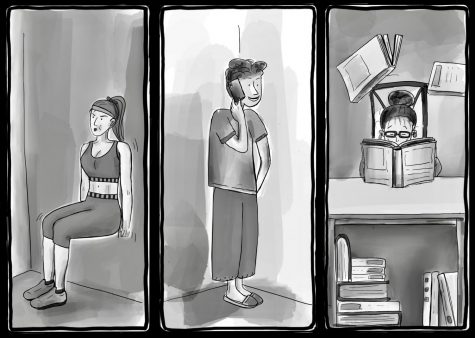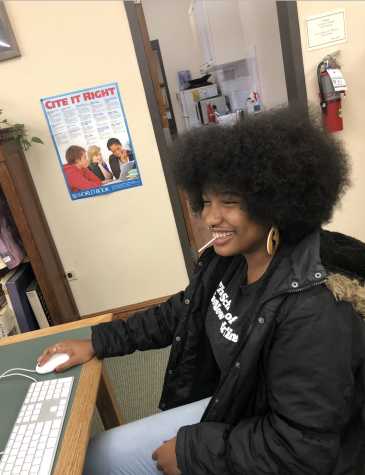COVID-19 affects mental health
May 5, 2020
There has been massive efforts from world leaders to control the spread of COVID-19 – from social distancing to curfews. This self-isolation period is having a large impact, both positively and negatively, on people’s mental health.
According to Upper School counselor Katya Ostor, this quarantine period has strengthened the bonds within a lot of people’s families.
She said, “For most, families have found new traditions and made lasting memories, passing time with cooking, playing games or taking time to talk to one another.”
Junior Hannah Reynolds is appreciative of the time she is able to spend with her family, particularly the time spent in the kitchen.
“Food has always been something that has brought my family together and it has been really nice to prepare meals with them and get to share in those experiences again,” she said.

Reynolds is also using this period to spend quality time with her siblings and catch up on what’s happening in their lives.
Even though there is good that can come from self-isolation, there are also consequences. According to the American Psychological Association, social isolation can lead to a number of health risks, including poor sleep, depressive symptoms, difficulty focusing and managing emotions.
Ostor believes people can combat these negative effects by maintaining a routine, which will make each day feel meaningful and separate from the one before.
“Create a daily routine and schedule that has dedicated time to connect with friends or loved ones either through virtual means, telephone or try a virtual hangout with several friends,” she said.
Reynolds admits that the transition from boarding to online learning at home has not been smooth.
“All this screen time is definitely starting to take its toll as headaches occur as soon as I start classes and last the rest of the day. It’s not an ideal situation.” she said.
Reynolds explained that her mental health has improved due to the time spent with family, but in some ways has also worsened because she went from three hours a day on her laptop to eight hours with online classes and homework.
Freshman Karina Mangru believes that it is important to stay away from screens after classes.
“I sometimes go outside to walk and take in the sunshine and beautiful weather or to just relax,” she said. Mangru has used this time to eat healthier, alleviate stress and exercise.
Upper School counselor Lydia Whitney recommends that one way to reduce stress and anxiety is changing the way one thinks.
“We can invite or engage in positive thinking. For example, ‘I know this feels scary right now, but there are things I can do like self care strategies to keep myself safe,’” she said.
Whitney also reminds students that they can reach out to a counselor for support either through the school or their local agencies, since most mental health agencies are providing telehealth over the phone or zoom. Students can also utilize the helplines on COVID-19 Center for Disease Control or World Health Organization websites for support.
Ostor understands that the majority of people have never experienced these kinds of restrictions before.
“It is scary and daunting not to know when it will end but it will in time end but the goal for now is to stay healthy and safe. Continue to make meaningful connections with friends and family and we will get through this together,” she said.



